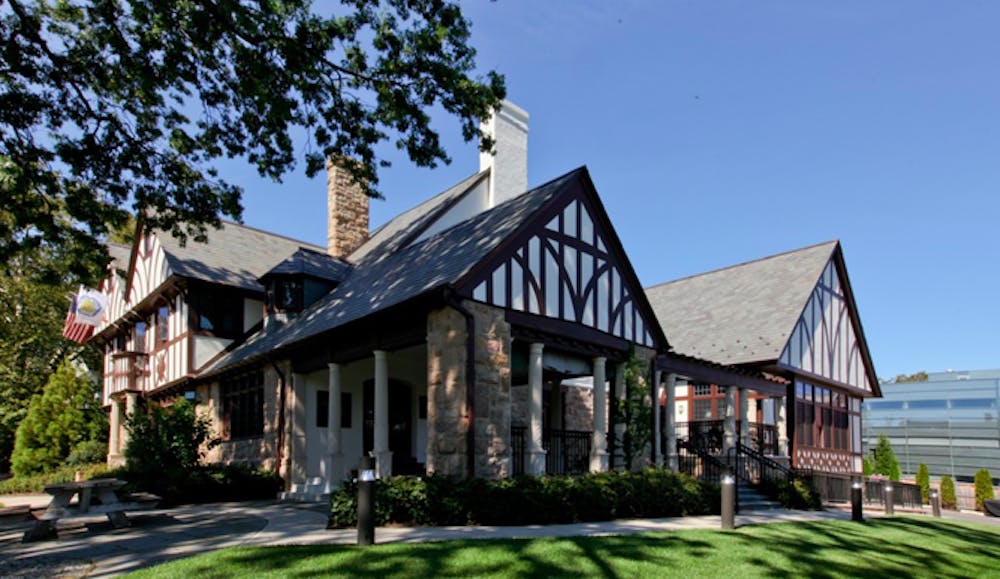Having just bid adieu to spring break, I assume most of us have realized what a marathon our daily lives are as Princeton students. A weeklong breather with friends — whether that’s up in Vermont’s ski slopes, down in the Miami sun, or simply in your room back home — allows you to take some time out for yourself and bond with loved ones. Holidays, in many ways, serve the same purpose. Holidays are an opportunity for people to come together to share in a common joy, from the fourth of July, uniting millions of Americans through bonds of citizenship, to Christmas, bringing together our merry spirits.
In other words, holidays are a reminder of hearth and home. However, is the nature of these holidays quite the same when they are transformed so that their essence rests on party culture? When Halloween becomes Princetoween, Thanksgiving becomes Dranksgiving, and Christmas becomes Litmas, their respective cultures of reigniting a childish streak to dress up, spending a day to thank family, and spreading holiday spirit all converge into one homogenous theme: the hunt for the pass to the most “it” eating club and the highest-proof liquor.
With the dreary clouds from Bicker season just starting to clear up, I’m sure we’ve learned (if any of us didn't already know) that eating clubs breed exclusivity. “Street holidays” become a paradox, then. Holidays are based on unity, of which inclusivity is a prerequisite. Our oh-so-dear Street has its doors wide open for students to gather with fellow Princetonians on all joyous occasions — if a student has a pass, that is.
With eating clubs’ limited capacity, their infrastructure simply doesn’t allow them to accommodate everyone who wants to be there, leading to the need for passes. So, should we really be celebrating these rare nights for unity somewhere that has to start assigning priorities through passes?
While sign-ins welcome those without passes, designating pass-only festivities which only a select few have access to adds to a problematic social hierarchy. Why give some the ability to more fully experience Princeton holidays than others? This exclusion only worsens if a person is the only one of their friends without a pass, splitting them from the very people with whom they should reunite on holidays.
Not only do “Street holidays” exacerbate issues of social exclusivity, they further propel the belief that a “great” college experience revolves around partying. With these nights at the Street drawing more students into one place than probably any other event, we can’t blame the remaining non-attendees for feeling like they’re missing out on the full college experience. This ideology is particularly problematic at Princeton for two reasons.
Firstly, social life is so strongly concentrated on elite clubs as around 80 percent of upperclassmen are in an eating club, a much greater presence than the national average of 12.8 percent of students that typically pledge into a fraternity or sorority. As a result, feelings of exclusion are further amplified.
Secondly, an emphasis on binge-drinking is ever-more problematic when students are experiencing increased levels of anxiety. With the intense workload our student body shares, the average Princeton student is generally pretty stressed out, making a partying-driven ideology all the more unhealthy. For many, these two factors strip holidays of much of their inherent joy.
The issue isn't even restricted simply to those who feel excluded. Replacing traditional holiday activities with drinking games robs us of the ability to create the memories that make holidays so special in the first place. We end up with memories that most of us wake up without the next day. The snippets we do remember aren't very different from any other night at the Street, and so blend into our jumbled collage of confusing memories from the Street. This shoves bonding, and the showing of love and care, far to the side.
At this point, you may think: simple problem, simple solution. Why can’t we just do something alongside “Street holidays?” Well, for the same reason that we can't do a lot of things alongside our classes: Princeton students just don't have the time. We have a short supply of time to celebrate holidays with our college friends, and by using partying as the primary means of celebration, we miss out on many opportunities for more fulfilling bonding activities.
In a way, though, “Street holidays” deserve some credit for managing to draw so many students’ noses out of their textbooks, but it is also possible to be silly and sober. For many, some of their best memories at Princeton may actually be from wild holiday nights at the Street — but we should encourage more opportunities for sober laughs and stories as well.
This isn't a plea to abolish the Street and the partying that comes with it. This is a call to create more room for other forms of celebration, outside of exclusive days like the upcoming Sunday Fundays. Be it welcoming the warm weather back with picnics on Poe field or enjoying the added hours of sunshine with walks along the Towpath, let’s cut down on some of the booze and stock up on some more wholesome bonding.

Khadijah Anwar is a first-year undergraduate from Dubai, UAE. She can be reached at kanwar@princeton.edu.








